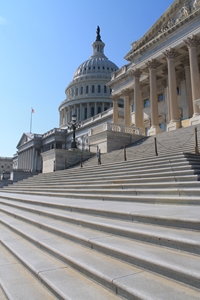State legislators to discuss Common Core throughout election year |
|||
 State lawmakers throughout the U.S. will begin making decisions about the Common Core State Standards (CCSS) this month. Many of them see education as a major talking point during their re-election runs, and analysts believe legislators will approach the topic cautiously. Because the Standards create a lot of debate in political circles, lawmakers will work to ensure that any changes made to education standards, like state accountability and assessment systems, serve the best interests of students. According to Jeremy Anderson, president of the Education Commission of the States, lawmakers want their decisions to create skilled and knowledgeable students that can thrive after high school and in the workplace. "For many governors, this transition from secondary to postsecondary is all about the future of the workforce in their states," Anderson told Education Week. Focusing on education standards Politics behind the Common Core "It's around assessments where states will make the biggest changes," Thatcher told the source. "The budget is probably one of the best levers that legislators have to influence the direction of this." The financial aspects of the CCSS weigh heavily on the minds of legislators. Most of the lawmakers' work will revolve around finding and evaluating multiple assessments across the country. They will look for relatively inexpensive options while also considering long-standing relationships with vendors that have years of experience in dealing with standardized assessments. Lawmakers will also take into consideration how the implementation of these assessments might affect new teacher evaluations. |

|
||
